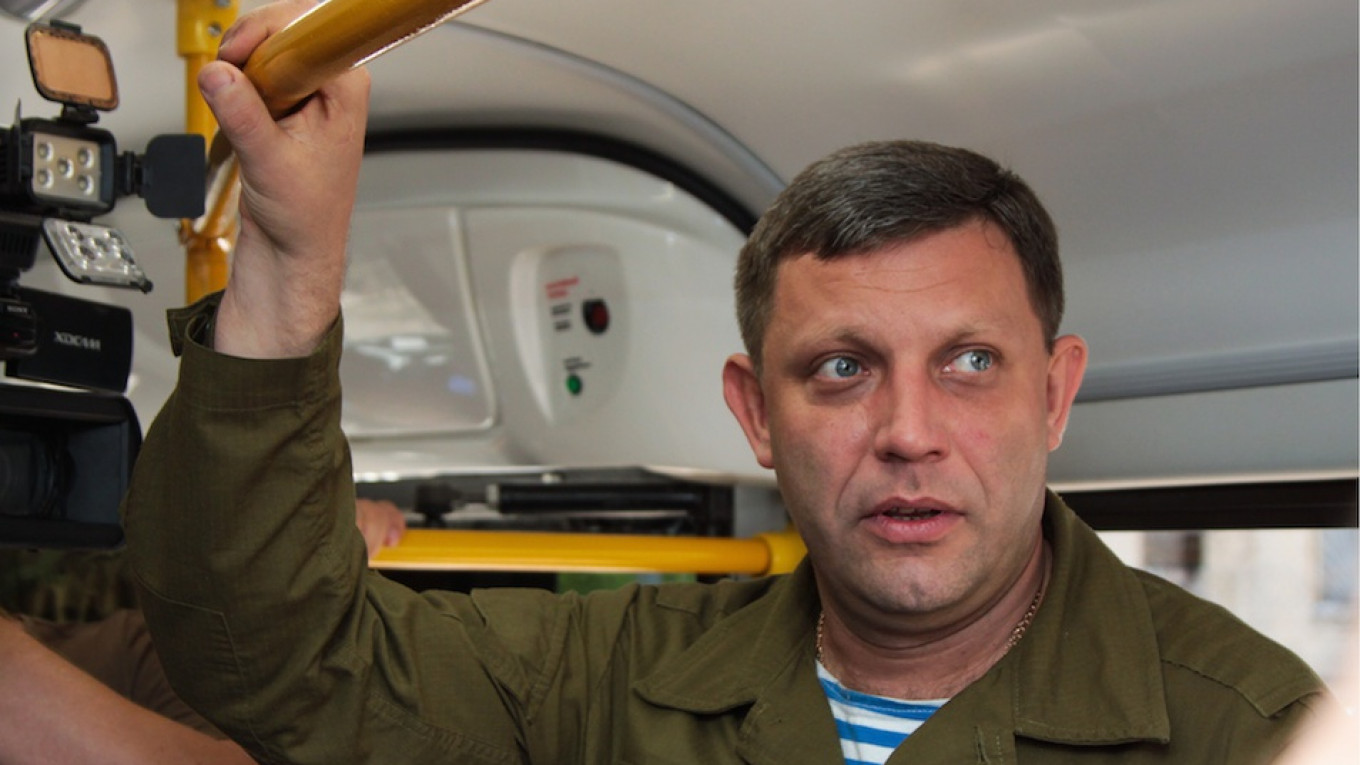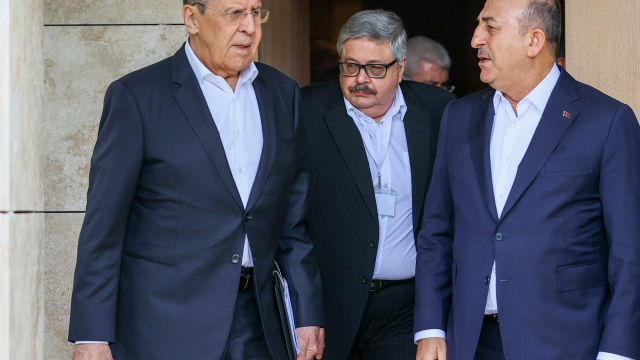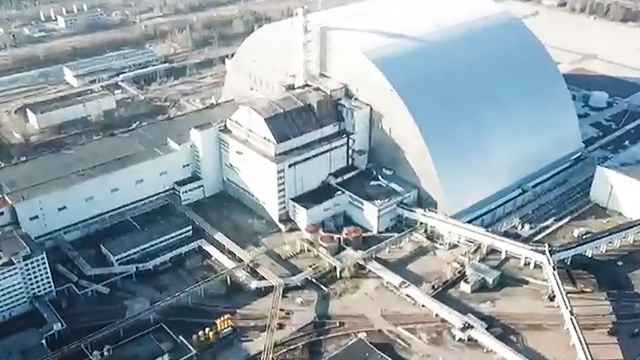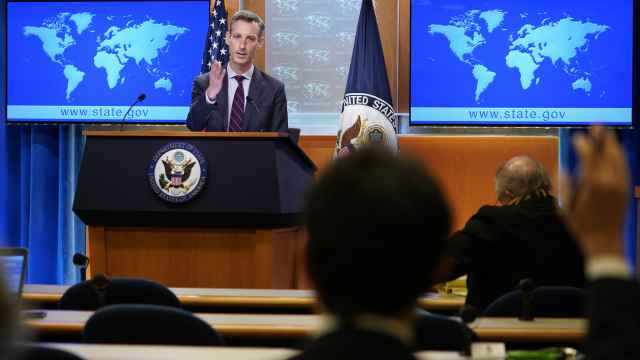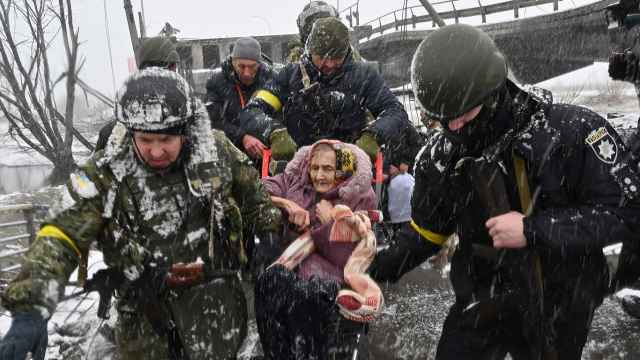The leader of Russian-backed separatists in the Donetsk region in eastern Ukraine was killed on Friday in a blast at a cafe in Donetsk city, the separatist administration said.
Russia accused Ukraine of assassinating the separatist leader, Alexander Zakharchenko, to try to unleash a renewed war in eastern Ukraine, but Kiev said it had nothing to do with the blast and blamed separatist infighting.
Zakharchenko, who led the self-proclaimed Donetsk People's Republic since 2014, "received injuries incompatible with life as a result of an explosion in the center of Donetsk," the separatist administration said in a statement.
Russian-backed rebels threw off Ukrainian central rule in an armed uprising after pro-Western leaders opposed by Moscow came to power in the Ukrainian capital, Kiev, in 2014.
A shaky internationally-brokered cease-fire has been in force since 2015, halting large-scale fighting, though there are still frequent outbreaks of shooting on the front line between the separatist and Ukrainian forces.
Russia's Foreign Ministry said it had every reason to believe Kiev was responsible for Zakharchenko's death, ministry spokeswoman Maria Zakharova said on the Rossiya-24 state television station.
Zakharchenko's death shows that Kiev has decided to engage in a "bloody fight" and has passed up on its promises of seeking peace, she said.
In Kiev, a spokeswoman for the state Security Service, Yelena Gitlyanskaya, dismissed Moscow's accusations.
"According to our information, this was the result of internal fighting which has already been continuing for years between the terrorists and their Russian sponsors," she said.
Infighting
Zakharchenko, a 42-year-old former coalmine electrician, became leader of the Donetsk Republic in November 2014. Other rebel leaders say he was handpicked for the role by Moscow. A vote held by separatists confirmed him in office.
The separatists have been dogged by infighting that has, on occasion, turned violent. Several past leaders of the separatists have fled the region, saying they feared for their lives after their comrades turned on them.
Earlier this year, three sources who led the original uprising in 2014 told Reuters they expected Zakharchenko to be pushed aside, with Moscow's assistance, and that a new rebel leadership would take over.
In the past, at least five other leading separatist commanders have been killed in unexplained circumstances not connected to front-line combat.
Separatist officials blamed Ukraine for the deaths, while Kiev — and some people among the separatists speaking on condition of anonymity — said in some cases the commanders were killed in internal purges.
Among those killed was Arseny Pavlov, who went by the nom de guerre "Motorola" and was blown up in the lift of his apartment building in Donetsk in October 2016.
Another prominent casualty was Alexander Bednov, nicknamed "Batman," a senior commander in the Luhansk People's Republic, another eastern Ukrainian breakaway region that neighbors Donetsk. He was killed in January 2015 when his convoy came under fire in a location where, at the time, there was no fighting with Ukrainian forces.
A source close to the Donetsk separatist leadership, who spoke on condition of anonymity, told Reuters on Friday that Denis Pushilin, head of the rebel legislature, was likely to become caretaker leader of the region.
The separatist administration, in its statement, said the blast that killed Zakharchenko also injured the deputy prime minister of the self-proclaimed republic, Alexander Timofeyev.
A Message from The Moscow Times:
Dear readers,
We are facing unprecedented challenges. Russia's Prosecutor General's Office has designated The Moscow Times as an "undesirable" organization, criminalizing our work and putting our staff at risk of prosecution. This follows our earlier unjust labeling as a "foreign agent."
These actions are direct attempts to silence independent journalism in Russia. The authorities claim our work "discredits the decisions of the Russian leadership." We see things differently: we strive to provide accurate, unbiased reporting on Russia.
We, the journalists of The Moscow Times, refuse to be silenced. But to continue our work, we need your help.
Your support, no matter how small, makes a world of difference. If you can, please support us monthly starting from just $2. It's quick to set up, and every contribution makes a significant impact.
By supporting The Moscow Times, you're defending open, independent journalism in the face of repression. Thank you for standing with us.
Remind me later.



